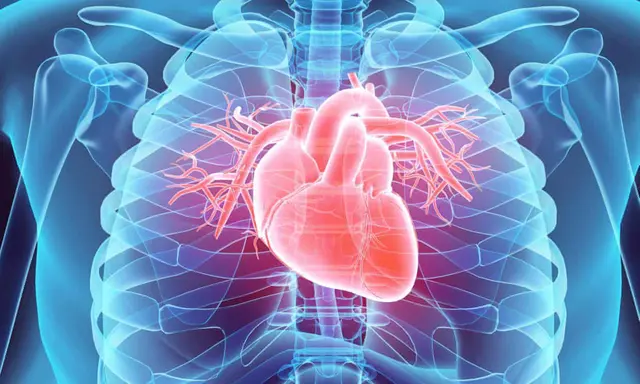Doctors in the US have announced plans for a radical gene therapy that aims to drastically reduce the risk of heart attack, the world’s leading cause of death, with a one-off injection.
The researchers hope to trial the therapy within the next three years in people with a rare genetic disorder that makes them prone to heart attacks in their 30s and 40s. If the treatment proves safe and effective in the patients, doctors will seek approval to offer the jab to a wider population.
“The therapy will be relevant, we think, to any adult at risk of a heart attack,” said Sekar Kathiresan, a cardiologist and geneticist at Harvard Medical School who will lead the effort. “We want this not only for people who have heart attacks at a young age because of a genetic disorder, but for garden variety heart attacks as well.”
Heart disease is the No 1 killer in many countries. An estimated 18m deaths are attributed to the condition every year, the vast majority of which, about 85%, are caused by heart attacks and strokes.
People who are at risk of a heart attack are typically put on a range of medicines, such as blood thinners, cholesterol-lowering statins, and pills for high blood pressure. Most must be taken daily for the rest of the person’s life, but many drift off their medication over time.
With a one-off gene therapy that permanently protects against heart attacks, the researchers hope to transform not only the impact theheart disease has on lives, but the costs that health services face in caring for patients. Cardiovascular disease accounts for a quarter of all deaths in England and costs the NHS £7bn a year.
“The most exciting part of this is changing from a chronic care approach to a ‘one and done’ approach,” said Kathiresan. “We really think we can turn the tide against coronary disease by moving from a chronic care model to [eradication with] a one-time treatment.”
High cholesterol is prevalent in Kathiresan’s family. His brother and an uncle both died at age of 42 from heart attacks. Kathiresan keeps his own cholesterol under control with drugs and a healthy lifestyle. Having spent the past 15 years identifying genes that raise or lower the risk of heart attack, he has resigned from Harvard and as director of the Center for Genomic Medicine at Massachusetts general hospital to run a startup called Verve Therapeutics, which will develop the new therapy. It has received $58.5m (£45m) from investors, including a venture fund run by Google’s parent company, Alphabet.
Rather than targeting the heart itself, the therapy will modify genes in the liver that are involved in making low-density lipoprotein (LDL), often referred to as “bad cholesterol”. With age, cholesterol tends to build up in arteries and ultimately cause the blockages that lead to heart attacks.
Research has shown that some people carry mutations that dramatically lower their natural levels of LDL, and in turn their risk of heart attack. For example, about one in 50 African Americans has only one, instead of the usual two, working copies of a gene called PCSK9. They have extremely low cholesterol as a result. “These people are healthy and remarkably resistant to heart attack,” said Kathiresan.
The therapy will inject scores of tiny, fatty spheres called nanolipids into the bloodstream which will home in on liver cells. When the nanolipids arrive, they will slip inside the cells and release a molecular gene editing kit known as Crispr-Cas9. This finds and then disables PCSK9 or a similar gene. The aim is to turn off about 30% to 40% of PCSK9 to mimic the natural mutation that protects against heart attacks.
(THE GUARDIAN)
 简体中文
简体中文

